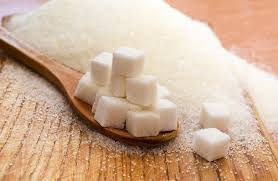Nourishing Yin
- Dr. Michael
- Sep 11, 2019
- 3 min read
Updated: May 11, 2023

When nourishing yin through nutrition, the key strategy is through nourishing the yin of the Kidney.
This organ pertains to the water element and is associated with various attributes we often associate with the kidneys in Chinese medicine, some of which we do not associate with the kidneys as an organ when looking from a western medicine point of view such as our bone structures, hearing, will power and other qualities that are associated with the kidneys and with the water element. However, most of these dietary suggestions seem to benefit the kidneys as an organ also from a medical point of view.
The key piece of nutritional wisdom is to focus on tonifying foods that moisten, along with some mildly cooling foods. Being an organ that is all about balance, moderation is very important. Therefore we need to resist a temptation to overdo cooling foods that may put out a fire that’s not as strong as it seems.
A wide and varied diet: Kidney Yin is about the deep reserves in the body including nutritional reserves. A varied diet that provides a broad array of vitamins, trace elements, minerals, and amino acids. This needs to be weighed against the spleen and stomach nutrition, which often seems to be better served by offering a smaller variety and maintaining a monotonous diet.
So if your condition entails both earth and water deficiencies, the two need to be weighed against each other.
Hydration: In any way you prefer to look at the kidneys, be it from a western point of view or Chinese, the kidneys are all about water. Keep yourself well hydrated throughout the day (and night).
Salty flavored foods: Salt is the flavor of the ocean. Miso, sea salt, tamari, salted raw sauerkraut or kimchee (Korean cultured vegetables). Each of the five elements in TCM has a flavor attributed to it, and the Water flavor which governs Kidneys is salty. The consumption of salt is controversial, of course, especially if you tend to suffer from hypertension (high blood pressure). Therefore, again, the key word is moderation. Sea salt is preferred over standard salt, especially Atlantic sea salt.
Seafood: fish, shrimp, seaweeds – all support the Water element.
Kidney shaped foods: black beans, kidney beans, most beans – Because beans are kidney shaped as well as seeds with potential for new life, these foods have long been considered especially nourishing to the Kidneys.
Blue and black foods: Blueberries, blackberries, mulberry, black beans – The colors blue and black correspond to the Water element of the Kidneys. It is possible to strengthen the Water element by eating blue/black foods.
Seeds: flax, pumpkins, sunflower, black sesame – seeds relate to fertility and growth which is governed by Kidney energy.
Nuts: Walnuts, Chestnuts – Nuts are seeds. These nuts are particularly recommended for Kidney energy.
Animal Products: Pork, duck, lamb, eggs, cheese – Small amounts of animal protein can be used therapeutically here. Pork and duck are considered moistening. Since animal products are rich foods there are some cautions: If there is digestive impairment, the high fat content of duck may be too much. Lamb is the most warming of the meats, so if the person has a lot of hot flashes or night sweats, this may not be appropriate. Excess cheese may be too dampening for the Spleen. Too much meat, particularly without the balance of vegetables, will Stagnate the Liver and create heat. Look to the individual to decide on the ideal amount of animal products.
Bone-Marrow Broths & Soups: This will nourish Marrow governed by Kidneys. Especially beneficial for people wanting to prevent or heal osteoporosis.
Grains: Barley, Millet. These are both mildly cooling and nourishing to Yin.
Vegetables: Asparagus, Deep green leafy vegetables – Since it has diuretic properties, asparagus is especially helpful with opening the flow for those with dark, scanty urine. Deep green leafy vegetables build the Blood, and since Blood is a Yin fluid, they are highly recommended. Also moist vegetables such as cucumbers and celery are helpful.
Fruits and Melons: These are emphasized since they are moistening and mildly cooling. Too much fruit can be too cooling resulting in diarrhea, but 2-4 pieces of fruit a day should be fine. If diabetes is either present or imminent, consumption of fruit should be done with caution and moderation.
“Super foods”: Spirulina, kelp, chlorella, wheatgrass – These mineral rich foods build the blood which enhances Yin. They are also high in nucleic acids (RDA/DNA) which have been shown to reduce signs of aging.



Does the "Chinese" kidney nutrition have anything to do with what a nephrologist would suggest?